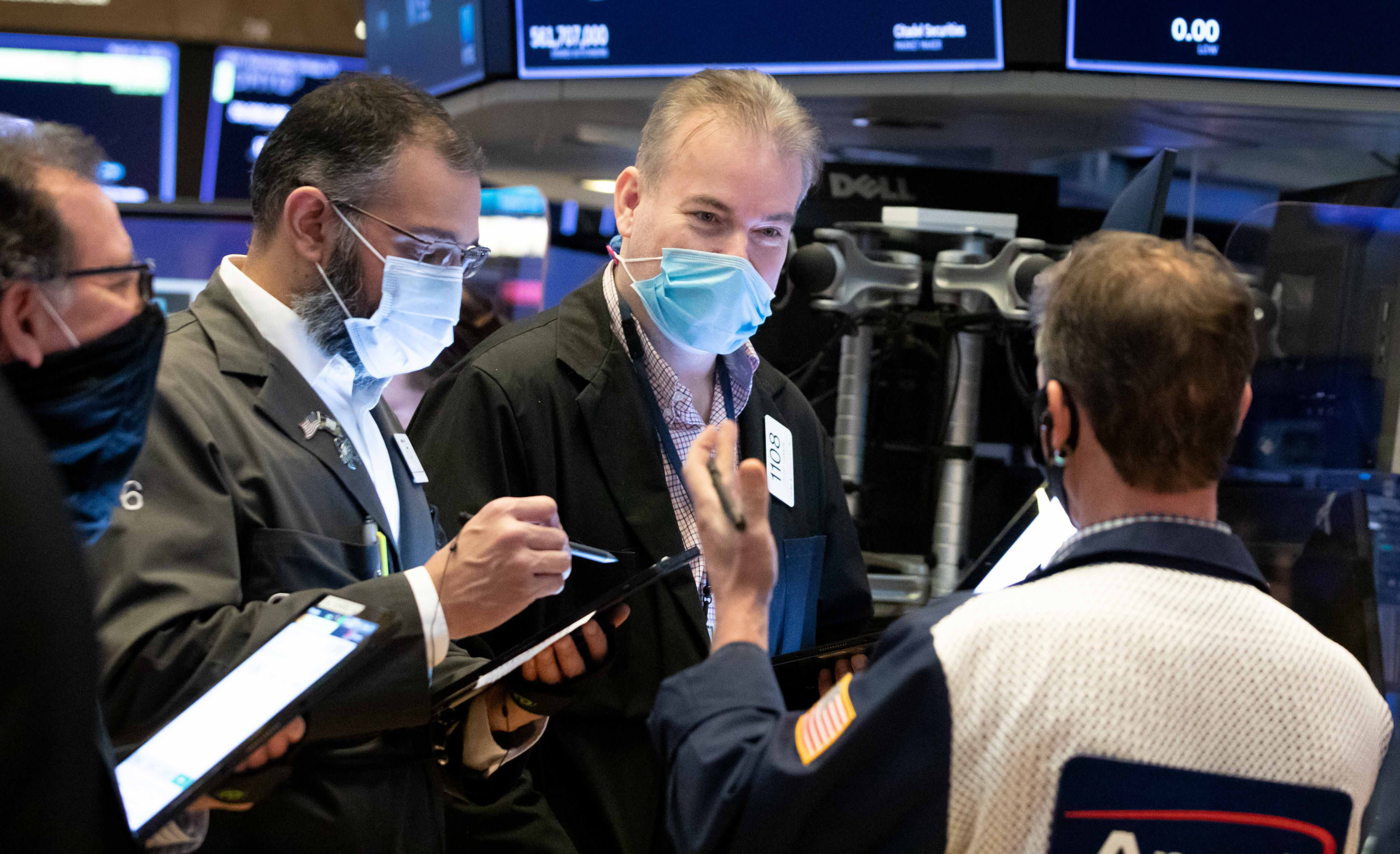Stock futures slip even after Senate passes $1.9 trillion Covid relief bill as bond yields rise

U.S. stock futures fell on Monday even as a new stimulus package from Washington headed toward final passage this week. Higher bond yields continued to cause a rotation out of technology stocks that have led the market’s comeback during the pandemic.
Futures for the tech-heavy Nasdaq 100 index got hit the hardest, down 1.2%. S&P 500 futures were off by 0.4%. Dow Jones Industrial Average futures erased earlier gains of more than 100 points to trade higher by 20 points.
The Senate passed a $1.9 trillion economic relief and stimulus bill on Saturday, paving the way for extensions to unemployment benefits, another round of stimulus checks and aid to state and local governments. The Democrat-controlled House is expected to pass the bill later this week. President Joe Biden is expected to sign it into law before unemployment aid programs expire on March 14.
The benchmark 10-year yield has risen sharply in recent weeks in anticipation of more stimulus on top of a booming economic recovery. The 10-year Treasury yield was up 3 basis points to 1.59% in early trading Monday. The yield rose as high as 1.62% on Friday after starting the calendar year below the 1% mark.
The rapid move in the bond marked has unnerved equity investors as well, contributing to weakness in stocks with high valuations.
“10-year yields finally caught up to other asset markets. This is putting pressure on valuations, especially for the most expensive stocks that had reached nosebleed valuations,” Mike Wilson, the chief U.S. equity strategist at Morgan Stanley, said in a note.
Shares of Tesla were off another 3% in premarket trading Monday. Zoom Video fell 2%.
On the flipside, the stimulus news boosted stocks banking on a strong economic recovery. Shares of retailers, energy companies and banks were higher in premarket trading.
Disney shares added 2% in premarket trading after California eased Covid rules, paving the way for Disneyland to reopen on a limited basis in April.
“We see higher rates largely as a function of earlier and stronger than expected economic recovery and supportive of our positive equity outlook,” Dubravko Lakos-Bujas, JPMorgan’s chief U.S. equity strategist, said in a note.
The tug-of-war taking place in the market as investors position for higher interest rates has knocked back the market a bit, but largely caused volatile trading and the S&P 500 to churn in place.
For March, the Dow Industrials, leveraged more to the reopening, is up 1.8%, while the Nasdaq Composite is off by 2%. Meanwhile, the broader S&P 500 is up 0.8%. The S&P 500 remains less than 3% from an all-time high.
This battle picked up on Friday when an afternoon rally took some of the sting out of a rough week for high-flying momentum names. The Friday turnaround doesn’t signal that the recent weakness for the market is over, but the divergence between tech and cyclical plays shows that the bullish story remains intact, Morgan Stanley’s Wilson said.
“The bull market continues to be under the hood, with value and cyclicals leading the way. Growth stocks can rejoin the party once the valuation correction and repositioning is finished,” Wilson said.
On the economic front, investors will get a look at wholesale inventory data from January on Monday. Several economic measures in recent weeks have shown a recovery that is picking up steam, including a better-than-expected February jobs report released on Friday.




